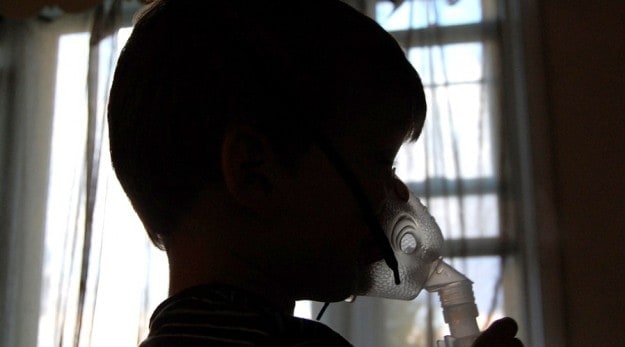Blog
Sometimes people lose their spleens due to accidents or sports injuries or illness, and they wonder what the spleen actually does. The spleen is the largest lymph organ in your body and it contains many lymph nodes. One of its jobs is to filter bacteria out of your blood when you are sick, to prevent infections from spreading throughout your body quickly. When the spleen is gone, infections can become serious very rapidly, so it is important to treat them as soon as possible. People without spleens should seek medical care earlier than other people. Whenever they undergo invasive procedures, asplenic people should be sure to take prophylactic antibiotics. These include dental procedures as well as surgeries. If they are bitten by dogs or ticks, asplenic people should also have antibiotics to clear the bacteria they likely picked up. As soon as they get a fever, they should call their doctor. They should receive antibiotics even when it’s not certain that their infections are bacterial, because of the risk of sepsis, or blood poisoning, from infections that ARE bacterial. This risk is 350 times greater for them than it is for normal people. The riskiest infections come from what are called polysaccharide encapsulated bacteria, like Streptococcus, Pneumococcus, Haemophilus and Meningococcus organisms. Vaccines for several of these types of bacteria are available and should be given to these folks. They should receive a flu shot every year, because right after the flu, many people get secondary bacterial infections with the bacteria mentioned above.
So, to summarize the answer to the question: you should get a Pneumovax vaccination, a meningococcus vaccine, a flu shot and a Haemophilus influenzae B vaccine (this may require more than one dose) if you haven’t already had these. Check with your own doctor about what you have had and what you might need for the latest information on this topic!

Read more: http://www.medicalnewstoday.com/releases/283697.php | Courtesy – Medical News Today!
Allergy Doctor Dallas Texas – Dr. Barbara Baxter
Youtube Link: http://youtu.be/lRiMo9j7Zyc
According to Allergy UK, allergy to peanut and tree nuts is the most common food allergy, and allergy to peanuts affects around 1 in 50 young children.

Most allergic reactions to peanuts and tree nuts are mild, but some can be severe and can lead to anaphylaxis, where breathing becomes difficult due to asthma-like symptoms or throat swelling, and blood pressure can also drop.
Courtesy – Medical News Today #MNT! Click on the link to read more! http://www.medicalnewstoday.com/articles/282843.php

There is conflicting evidence about the association between low vitamin D levels in children and development of asthma in later life. The objective of this study was to systematically review the evidence for an epidemiological association between low serum levels of vitamin D and the diagnosis of asthma in children.
Methods
We used the Cochrane methodology for conducting systematic reviews. The search strategy included an electronic search of MEDLINE and EMBASE in February 2013. Two reviewers completed, in duplicate and independently, study selection, data abstraction, and assessment of risk of bias.
Results
Of 1081 identified citations, three cohort studies met eligibility criteria. Two studies found that low serum vitamin D level is associated with an increased risk of developing asthma late in childhood, while the third study found no association with either vitamin D2 or vitamin D3 levels. All three studies suffer from major methodological shortcomings that limit our confidence in their results.
Conclusions
Available epidemiological evidence suggests a potential association between low serum levels of vitamin D and the diagnosis of asthma in children. High quality studies are needed to reliably answer the question of interest.
Read the whole article here: http://www.aacijournal.com/content/10/1/31 | Courtesy – AACI

#Anaphylaxis is a severe #allergic reaction that needs emergency #medicaltreatment. It can happen in seconds or even hours after contact with something the person is allergic to, like foods, insect venom, latex, or medication. In rare cases, exercise and physical activity also can trigger anaphylaxis.
Symptoms may include:
– Hoarseness
– Tightness in the throat
– Wheezing, or trouble breathing or swallowing
– #Hives
– Swollen eyes or lips
Read more at: http://www.webmd.com/allergies/anaphylaxis-13/treating-life-threatening | Courtesy – WebMD
Exposure in the womb to household chemicals known as phthalates might increase a child’s future risk of developing asthma, Columbia University researchers reported in a new study.

Children had nearly an 80 percent increased risk of developing asthma between age 5 and 11 if their mothers were exposed during pregnancy to high levels of two phthalates (pronounced thal-ates), the researchers found. The two phthalates were butylbenzyl phthalate and di-n-butyl phthalate, according to the study.
Read more at: http://www.pollen.com/allergy-news.asp?hdid=691807
10 percent of children tracked had #allergy to peanuts, eggs or milk.

Read more at: http://www.webmd.com/allergies/news/20140822/food-allergies-more-common-among-inner-city-kids-study-finds | Courtesy – WebMD.
For those of you that suffer from watery, itchy eyes and runny noses throughout allergy season, antihistamines are likely to be your best friend. But a new study finds the drugs may do more than combat hayfever; they could fight cancer, too.

Read more at: http://www.medicalnewstoday.com/articles/279000.php
Courtesy – Medical News Today.






